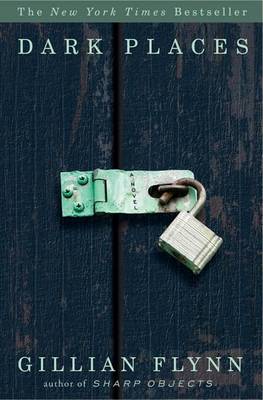
Libby Day was just seven years old when her older brother massacred her family while she hid in a cupboard. Her evidence helped put him away. Ever since then she has been drifting, surviving for over twenty years on the proceeds of the 'Libby Day fund'. But now the money is running out and Libby is desperate. When she is offered $500 to do a guest appearance, she feels she has to accept. But this is no ordinary gathering. The Kill Club is a group of true-crime obsessives who share information on notorious murders, and they think her brother Ben is innocent. It is 2 January 1985 - the day of the murders. Ben is a social misfit, ground down by the small-town farming community in which he lives. His family is extremely poor, and his father Runner is violent, gambles and disappears for months on end. But Ben does have a girlfriend - a brooding heavy metal fan called Diondra. Through her, Ben becomes involved with drugs and the dark arts. When the town suddenly turns against him, his thoughts turn black. But is he capable of murder?In a brilliantly interwoven plot, Gillian Flynn keeps the reader balanced on a knife-edge, as Libby delves into her family's past and Ben spirals towards destruction.
Well, I’ve done it. I’ve successfully read all Flynn’s novels and come out the other side alive and amazed. Reading Flynn’s Dark Places I reminded me of my childhood home in southern Minnesota with is corn and bean fields and conservative opinions. When I was in high school, a youth group leader actually warned me about my boyfriend because he was a table top gamer which was apparently a gateway to Devil worship. I find it funny now that the nerd and geek way of life is considered mainstream now when back in the late 80’s, early 90’s people in my hometown believed it led to Satanism. I was also reminded of a time when I used to marvel over my mother’s copy of Flowers in the Attic, with its peek-a-boo cover, and anxiously await the day I would be old enough to read it. Dark Places, for me, was a warped reflection of the world I was raised in; one I could relate to because we all have a dark side.
What’s rewarding about having read all three of Flynn’s novels is that, as a reader, I can see her growth as a novelist. Dark Places has characters I was able to identify with and start to empathize with–Libby’s quest for truth, Patty’s desperation to save her family, Ben’s desire to be seen as an adult. We’ve all been there. Paired with a gruesome murder in the wilds of Kansas, one can’t help, but be drawn in wondering how Libby ended up abandoned, how Patty ended up dead and how Ben ended up in prison. Flynn dances from storyline to storyline giving unique voices to each character urging you to turn the page and find out another side of the story.
Flynn’s growth as a novelist can be seen best in the reveal. Sharp Objects threw the reveal in your face because the suspect was encountered in almost every chapter. Gone Girl blind sided you because as you started to take a side, Flynn would turn a sharp corner and whip your allegiance to the other side of the road. In the end, Gone Girl wasn’t really about the reveal, but about the character development and how the reader can be manipulated by the facts. The reveal in Dark Places falls squarely between these two extremes. There are hints of the suspect throughout the book and some of the hints are right in your face while others are slipped in casually. While Flynn is dropping hints she uses the multiple points of view to tug at your heartstrings or make you sneer in disgust.
There’s not much more I can say about Dark Places without spoiling it. It’s definitely a stronger novel and a more character driven novel than Sharp Objects, but it doesn’t have the polish of Gone Girl. If you are a fan of darker mysteries with a bit of grey area, Dark Places is definitely a must read. Overall, I give Dark Places a thumbs up.
Reading updates
-
Started reading
-
11 October, 2014:
Finished reading
-
11 October, 2014:
Reviewed
